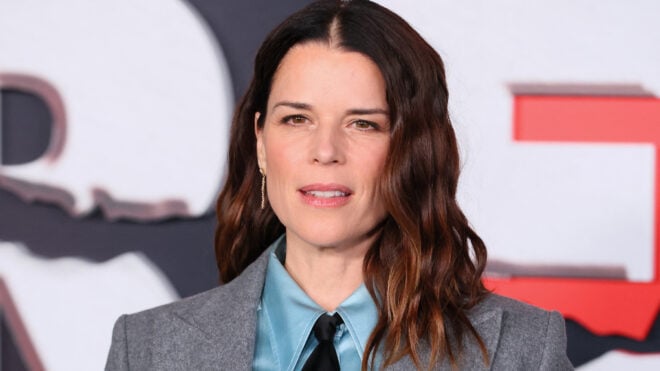
When her nephew was 8 years old, nationally recognized personal finance expert and influencer Buffie Purselle began teaching him how to track and spend money using a prepaid debit card. Purselle and her sister, Aiden’s mom, told him that if for three months he didn't spend the money he received for his chores, birthday, and holidays, he would receive an interest payment from them for saving his money. He was intrigued by this idea and agreed to save.
But Purselle, author of the new book Crawl Before You Ball: Breaking the Cycle of Generational Poverty, tells LittleThings, “On day 91, he decided to do a bit of shopping. Then he shopped again on day 93, 97, and so on. Finally, my sister was with him at Walmart, and Aiden had picked out a few items. She asked him if he had enough money on his prepaid card. He confidently said, ‘Of course!’ He proudly set his purchases on the checkout belt and requested cashback. His charge declined in a line full of people.”
His mom wouldn’t bail him out, and he had to put all those items back. Aiden learned his lesson, and he has never let it happen to him again. Today, at age 19, he saves half of his paycheck each pay period.
“We need to start normalizing finance discussions, especially with tweens,” says Purselle. “Many of us have hang-ups about money because we were taught early on that it is inappropriate or tacky to discuss finances. In my work with clients and students to help them improve their financial circumstances, I’ve seen how talking about money can cause anxiety, stress, and even shame, as many associate the state of their finances with their personal worth.
"We have all made money mistakes, and while we may not have all the answers, having an openness to discuss, learn, and improve our financial situations can guide us on the path to financial mental well-being. We can also set our children up for success by bringing them into the conversation and encouraging them to learn early about money management.”
Courtney Hale, founder of Super Money Kids and a single father, tells LittleThings, “We want to shift the language and approach to budgeting. In the Super Money Kids programs, we call them ‘spending plans.’ Spending plans sounds less triggering and restrictive. It also suggests that it is OK to actually spend your money.
“Next, tweens should understand that their personal goals should drive how they spend their money. There should always be something that they are working towards financially. Lastly, we want them to prioritize the things they spend their money on in the order of needs, goals, and wants. Needs are things we have to have to survive or thrive in a certain environment. Goals are things we want to accomplish in the future. Things that provide opportunities for our future selves. And our wants are the things that bring us supplemental happiness.”
Buffie Purselle suggests that parents of tweens set them up with a financial app. “Tweens have grown accustomed to technology and will likely use the budgeting features and real-time tracking of spending and saving features,” she notes. “These apps also make it easy for parents to have access to their accounts.”
She advises parents to include children in family budget talks: “When, as a child, you experience your parents discussing money and finance openly and regularly, it won't be such a taboo or intimidating topic for you as an adult. These discussions could be scheduled as a group, with one-on-one conversations and teaching moments occurring organically.”

Purselle tells parents, “Be open and honest with your tweens. Don’t treat them like little kids and they will be more receptive to the budgeting and personal finance talks. Teach them that your parents' money is not your money, you can invest in yourself by saving, the power of compound interest to earn money while you sleep, and just say ‘no’ to friends who ask to borrow money. Also, show tweens that budgets not only tell you what you can’t spend now, but they also provide for what you can have later.”
Both experts agree that it’s important to discuss impulse purchases with your tween. Courtney Hale adds, “Impulsive decisions are a threat to any great financial plan. Although we don’t want our children to derail their progress for their goals, sometimes it can be good to let them feel the pain of disappointment so they can learn from their mistakes. Give kids freedom within limits. Let them feel the pain of missing a goal because of their impulsive decisions. They will remember that feeling and do better next time.”
Courtney Hale shares his five financial tips for tweens with LittleThings:
- Time is our most valuable asset. It’s the one thing we can’t get back. In terms of investing and compound interest, waiting will cost you money. Because of technology, this generation of tweens has the luxury of living in an era where they can create, act, and move without the authorization or approval of someone else. This is a luxury that all tweens should be taking advantage of.
- Your first investment is yourself. You increase the value of that investment by taking care of your health, continuing your formal and informal education, and creating new experiences.
- Tweens are both producers and consumers. We all have to be consumers to meet our needs and wants. Producing is about ownership. Being a producer is a choice. A very valuable choice. We should strive to produce goods, services, or content that others are willing to consume.
- Money is earned and not summoned. We should help our tweens identify a method for earning money that aligns with their interests and abilities.
- Save to create opportunities for your future self. From prom to buying a rental property, there are things that tweens want to experience that cost money. It’s important to make saving more about their interests as opposed to an empty habit.
If you’re going to set up a bank account for your tween, Hale suggests that when you choose an account for your child, be sure the account offers all or at least most of the following features:
- A low minimum deposit
- A benchmark of $50 or less
- Low fees. "The best checking accounts for youth should not have monthly fees, no ATM fees, or insufficient fund fees," says Hale.
- Special incentives. "Some banks may match an initial deposit up to a certain amount," he advises, "or provide specially branded debit cards for their youth accounts."
Hold off on handing over a credit card, warns Hale. “Tweens should have debit cards, but not credit cards. I would wait until 16 before getting a child a credit card, and it would need to be a prepaid credit which has a prepaid limit and will help the kiddo build their credit. Encouraging your child to only spend cash is like asking them to rent their movies from Blockbuster. Every day, we are closer to a cashless society. There are already cities throughout the world who no longer use cash! Our children need to learn about money in the era which they are living. We are actually close to physical cards not being a thing now that we can use our cellphones to complete daily transactions. Debit cards allow youth to practice their ‘budgeting’ skills.”
Teaching your tween how to spend, save, and budget will help them from becoming among the 80% of Americans in debt.







